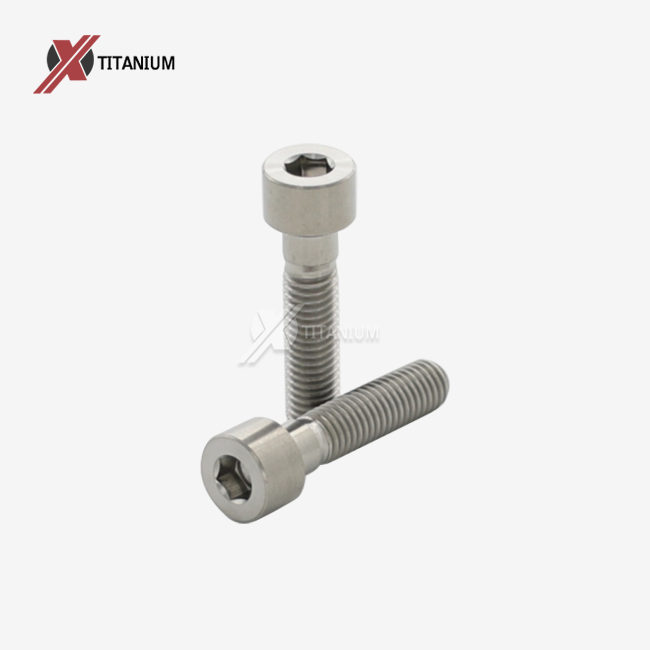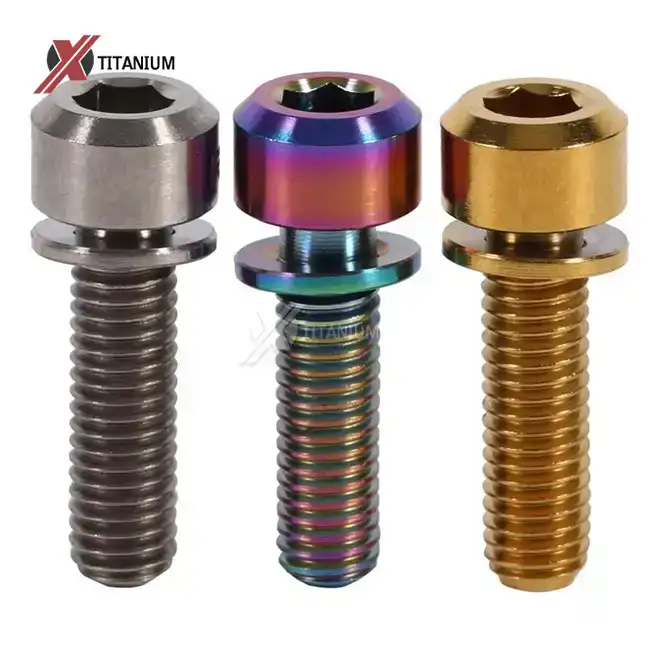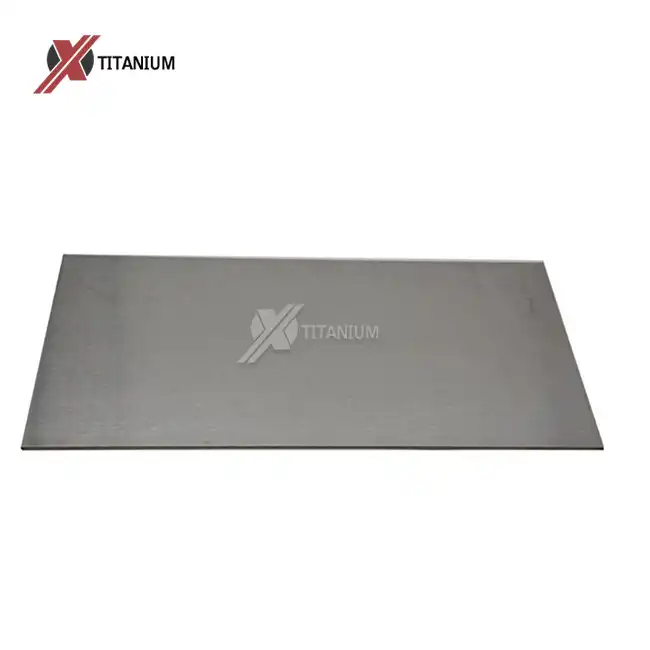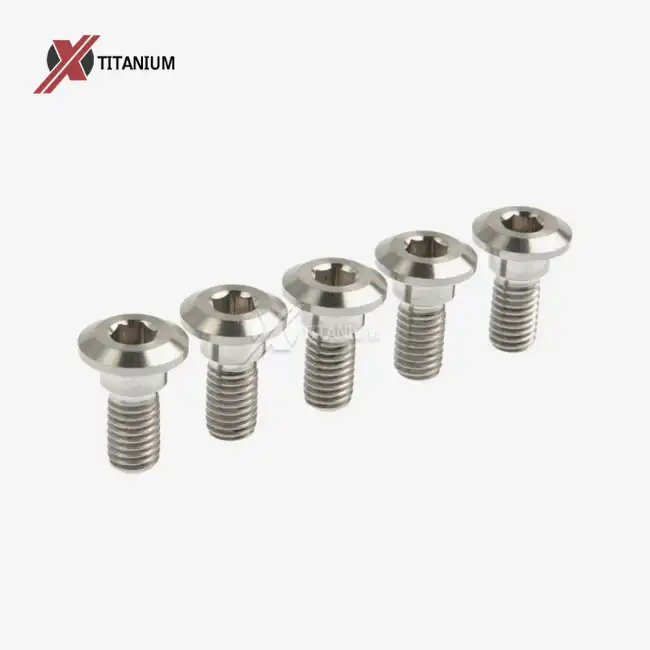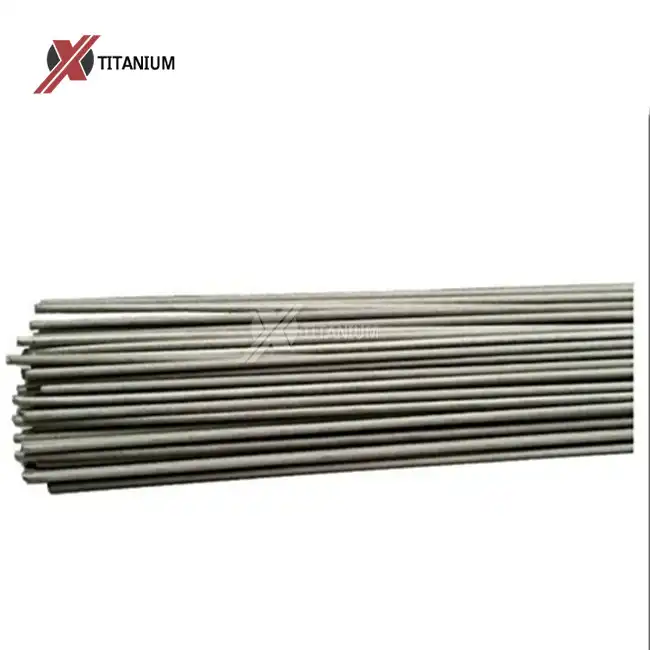Understanding Titanium Socket Head Screws in Aerospace Engineering
Properties and Advantages of Titanium in Aerospace
Titanium socket head screws have become indispensable in aerospace engineering due to their exceptional properties. The high strength-to-weight ratio of titanium makes these fasteners an ideal choice for aircraft and spacecraft, where every gram matters. Titanium's resistance to corrosion and fatigue ensures longevity and reliability in the harsh conditions encountered during flight and space missions.
Moreover, titanium's ability to maintain its mechanical properties at elevated temperatures makes it suitable for use in engine components and other high-temperature applications. The biocompatibility of titanium also allows for its use in life support systems and other sensitive areas where material reactivity is a concern.
Comparison with Other Materials Used in Aerospace Fasteners
While steel and aluminum alloys are commonly used in aerospace fasteners, titanium socket head screws offer distinct advantages. Compared to steel, titanium screws are significantly lighter while providing comparable strength. This weight reduction can lead to substantial fuel savings and improved performance in aircraft and spacecraft.
Aluminum fasteners, while lightweight, lack the strength and temperature resistance of titanium. In applications where high loads or extreme temperatures are expected, titanium socket head screws outperform their aluminum counterparts. The superior corrosion resistance of titanium also gives it an edge over both steel and aluminum in environments where exposure to moisture or chemicals is a concern.
Design Considerations for Titanium Socket Head Screws in Aerospace
Specialized Threading and Head Designs
The design of titanium socket head screws for aerospace applications often involves specialized threading and head configurations. Fine-pitch threads are commonly used to increase the load-bearing capacity and resistance to vibration-induced loosening. Some designs incorporate thread-locking features or coatings to further enhance vibration resistance.
Head designs may include modifications to reduce weight without compromising strength. For example, reduced-weight heads with thinner walls or hollowed-out sections are sometimes employed. The socket design itself may be optimized for ease of installation in tight spaces or to accommodate specialized tools used in aerospace assembly.
Surface Treatments and Coatings
Surface treatments play a crucial role in enhancing the performance of titanium socket head screws in aerospace applications. Anodizing is a common treatment that creates a hard, wear-resistant oxide layer on the surface of the screw. This layer not only improves corrosion resistance but can also be colored for identification purposes.
Nitriding is another surface treatment that can significantly improve the wear resistance and fatigue strength of titanium screws. This process creates a hard, nitrogen-rich layer on the surface of the screw, which is particularly beneficial in high-stress applications.
Specialized coatings may also be applied to titanium socket head screws to enhance their properties. Dry film lubricants, such as molybdenum disulfide, can be used to reduce friction and prevent galling during installation. Anti-seize compounds may be applied to facilitate future disassembly, particularly in applications where high temperatures or corrosive environments are expected.
Applications and Performance of Titanium Socket Head Screws in Aerospace
Critical Aerospace Systems Utilizing Titanium Fasteners
Titanium socket head screws find applications in numerous critical aerospace systems. In aircraft engines, these fasteners are used to secure turbine blades, compressor components, and exhaust systems. The high-temperature resistance and strength of titanium make it an ideal choice for these demanding environments.
In airframe structures, titanium socket head screws are often employed in areas subjected to high stress or where weight reduction is crucial. This includes wing attachments, landing gear assemblies, and fuselage components. The corrosion resistance of titanium is particularly beneficial in these applications, as it helps prevent structural degradation over time.
Space vehicles and satellites also make extensive use of titanium fasteners. The extreme temperature fluctuations and vacuum conditions encountered in space require materials that can maintain their integrity under these conditions. Titanium socket head screws are used in satellite panels, propulsion systems, and scientific instruments, where reliability is paramount.
Performance Metrics and Testing Standards
The performance of titanium socket head screws in aerospace applications is subject to rigorous testing and quality control standards. Key performance metrics include tensile strength, yield strength, fatigue resistance, and corrosion resistance. These properties are typically tested in accordance with industry standards such as ASTM F136 for titanium alloys used in implants, which is often referenced for aerospace applications as well.
Fastener-specific tests include torque-tension testing to ensure proper preload can be achieved, vibration testing to verify resistance to loosening, and salt spray testing to evaluate corrosion resistance. In aerospace applications, additional testing may be required to simulate the extreme conditions encountered during flight or in space.
Quality control measures for titanium socket head screws in aerospace often include non-destructive testing methods such as X-ray inspection or ultrasonic testing to detect any internal flaws or inconsistencies in the material. Lot traceability and material certifications are also critical aspects of quality assurance in aerospace fastener production.
Case Studies: Successful Implementation in Aerospace Projects
Numerous aerospace projects have successfully implemented titanium socket head screws to overcome engineering challenges. In one notable case, a next-generation commercial aircraft manufacturer opted for custom-designed titanium fasteners in their wing-to-body join. This decision resulted in a significant weight reduction compared to traditional steel fasteners, contributing to improved fuel efficiency without compromising structural integrity.
Another example involves a space exploration mission where titanium socket head screws were used in the assembly of a Mars rover. The screws' ability to withstand extreme temperature variations and resist the corrosive Martian environment proved crucial to the mission's success. The lightweight nature of the titanium fasteners also helped in meeting strict payload constraints.
In the realm of supersonic aircraft development, titanium socket head screws have played a vital role in managing the high temperatures generated by air friction at extreme speeds. Their use in critical areas of the airframe and propulsion systems has enabled designers to push the boundaries of aircraft performance while maintaining safety and reliability.
Conclusion
Titanium socket head screws have proven to be indispensable components in modern aerospace engineering. Their unique combination of strength, lightweight properties, and corrosion resistance makes them ideal for the demanding environments encountered in aviation and space exploration. As aerospace technology continues to advance, the role of these specialized fasteners is likely to grow, with ongoing research and development aimed at further enhancing their performance and versatility.
For those seeking high-quality titanium socket head screws for aerospace applications, Baoji Chuanglian New Metal Material Co., Ltd. offers a wide range of customizable options. With over a decade of experience in titanium product manufacturing and research, we are well-equipped to meet the exacting standards of the aerospace industry. To learn more about our titanium fastener solutions, please contact us at info@cltifastener.com or djy6580@aliyun.com.
